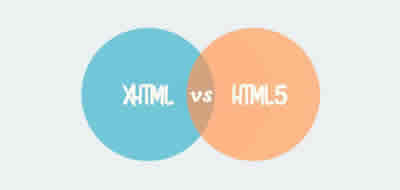How PHP started – Rasmus Lerdorf creator of PHP
In 1994 a programmer born in Greenland, named Ramus Lerdorf, developed a code that would help create his personal web page in a simpler way. He called it Personal Home Page Tool (PHP Tools) or tools for personal main pages.

In 1994 a programmer born in Greenland, named Ramus Lerdorf, (http://lerdorf.com) developed a code that would help create his personal web page in a simpler way.
He called it Personal Home Page Tool (PHP Tools) or tools for personal main pages. Out of the three first words come the name of the language that finally was released to public, for free in 1995.
Two years later, along other people, he rewrites part of the language’s code and launches the PHP version that took the language to stardom: PHP 3. A fast, simple and dynamic language that allows to create interactive web pages in few coding.
From that moment they decide the name Personal Home Page was a bit short for the language and decide to change the meaning of the acronym. Which nowadays means: “PHP Hypertext Preprocessor”.
It’s not a misprint that the letter P in PHP means PHP. It is a recursive acronym (a programmer’s trick) and the rest of the name means “Hypertext Preprocessor”
It’s a preprocessor because it executes before the browser and works mainly over hypertext, which is the subjacent concept of HTML documents.

How did it begin?
In 1995 Rasmus Lerdorf wanted to know how many people were reading his curriculum vitae in his web page, in order to do that, he created a CGI in Perl that showed the statistic result on the page itself. Rasmus called that script PHP, and acronym for Personal Home Page.
Fifteen years later, the world of the Web has changed drastically. The evolution and diffusion of PHP in the world of Web development has gone far beyond what Rasmus could have imagined; it is a world that you can now be a part of.
Over the years he has also earned his own name. PHP is simply PHP. It is as important on the Web as it is HTML.
It is an easy to learn language, simple to use, powerful, fast, free, open source and used in more than half of all websites in the world.
Just to illustrate the power of language, we will mention that the most important and most visited site in the world today, Facebook, is developed with PHP.

Mr. Maximiliano Firtman had the opportunity to personally meet Rasmus at a conference on extreme optimization of PHP and he has been very present an anecdote that he shares with us.
Rasmus had the opportunity to analyze the PHP source code of the first versions of Facebook. The code was a disaster, badly programmed, with errors everywhere.
And even though he detected that Web was from the side of the code, it worked fine! And look at what Facebook has become: a billion dollar company.
The moral of the anecdote is that the great advantage of PHP is its ability to function without problems in any circumstances and to be able to have a Web ready in a very short time.
Rasmus, a little exaggerated to make understand the objective of his moral, commented that the most successful projects on the Web are not the best programmed, those that follow the best practices or those that are developed by academics.
They are those who implement the best ideas and do it as quickly as possible; that's why PHP is the ideal language for the Web.
CITE ARTICLE
For homework, research, thesis, books, magazines, blogs or academic articles
APA Format Reference:
Delgado, Hugo. (2019).
How PHP started – Rasmus Lerdorf creator of PHP.
Retrieved Nov 13, 2025, from
https://disenowebakus.net/en/how-php-started






